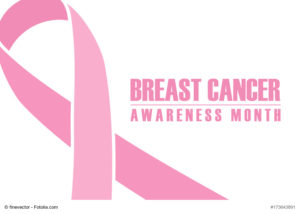You may have seen the term “BRCA 1 and BRCA 2 testing” being used on the internet in regard to breast cancer, but are you unsure about what it means? The simple explanation is this: BRCA1 and BRCA 2 are genes that help repair damaged DNA. Damaged DNA can lead to tumor growth. When either of these genes do not function properly, cells are more likely to develop genetic alterations that can lead to cancer.
It is possible to test for BRCA 1 & 2 mutations, but is it necessary for you? Having all of the information can help you make an informed decision.
How Much Does a BRCA 1 or 2 Mutation Affect Breast Cancer Risk?
The genetic mutations greatly affect women’s risk of developing breast cancer. In women without a BRCA 1 or 2 mutation, the risk of developing breast cancer is approximately 12 percent. By the age of 70, women who have the BRCA 1 mutation have a 55 to 65 percent chance of developing breast cancer and women who have the BRCA 2 mutation have a 45 percent chance.
It’s important to note that these risk percentages should only be used as a general guideline. Individual characteristics can make cancer risk rise or decrease.
Who Should Get a BRCA 1 & 2 Test?
Not everyone needs a BRCA 1 & 2 genetic test. These genetic mutations are somewhat rare in the general population, and because of this, widespread testing of the general population is unnecessary and expensive.
However, according to the National Cancer Institute, anyone with a family member who exhibits the following symptoms may be more likely to have one of the BRCA mutations:
- Breast cancer diagnosed before age 50 years
- Cancer in both breasts in the same woman
- Both breast and ovarian cancers in either the same woman or the same family
- Multiple breast cancers
- Two or more primary types of BRCA1- or BRCA2-related cancers in a single family member
- Cases of male breast cancer
- Ashkenazi Jewish ethnicity
What Happens After Test Results?
For women who decide to get tested, their physician will be able to help plan their future health plan accordingly. For those who test positive for the BRCA 1 or 2 mutation, it is typically recommended that they begin receiving enhanced screenings. This means that the patient will be given breast screenings at a younger age and more frequently than the general population.
Enhanced screenings will increase the doctor’s chance of detecting breast cancer in its early stages, which may result in a better chance of it being treated successfully.
Discussions With Your Doctor Are Key
There’s no general rule to follow to determine whether or not genetic testing is right for you. If you have concerns about your family history or your breast cancer risk, speak with your physician. They will be able to guide you into the right direction for you and your needs.
Schedule an appointment with Atlanta Women’s Obstetrics & Gynecology online.

